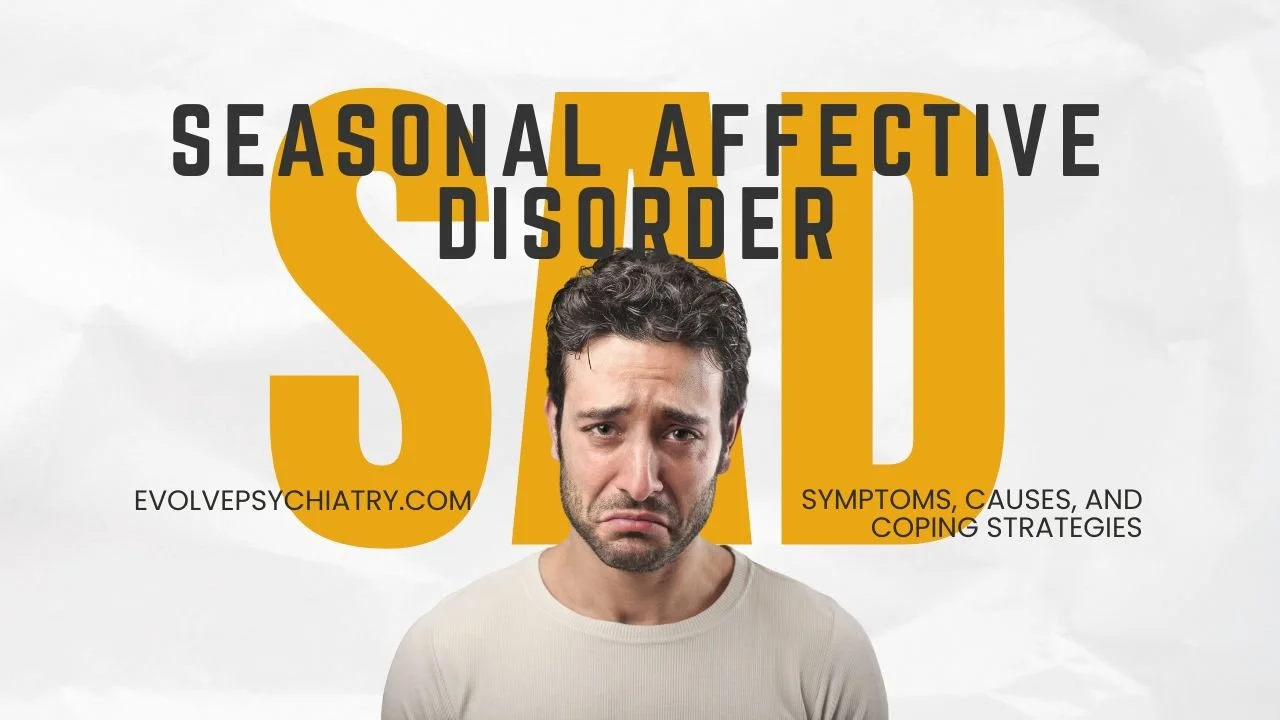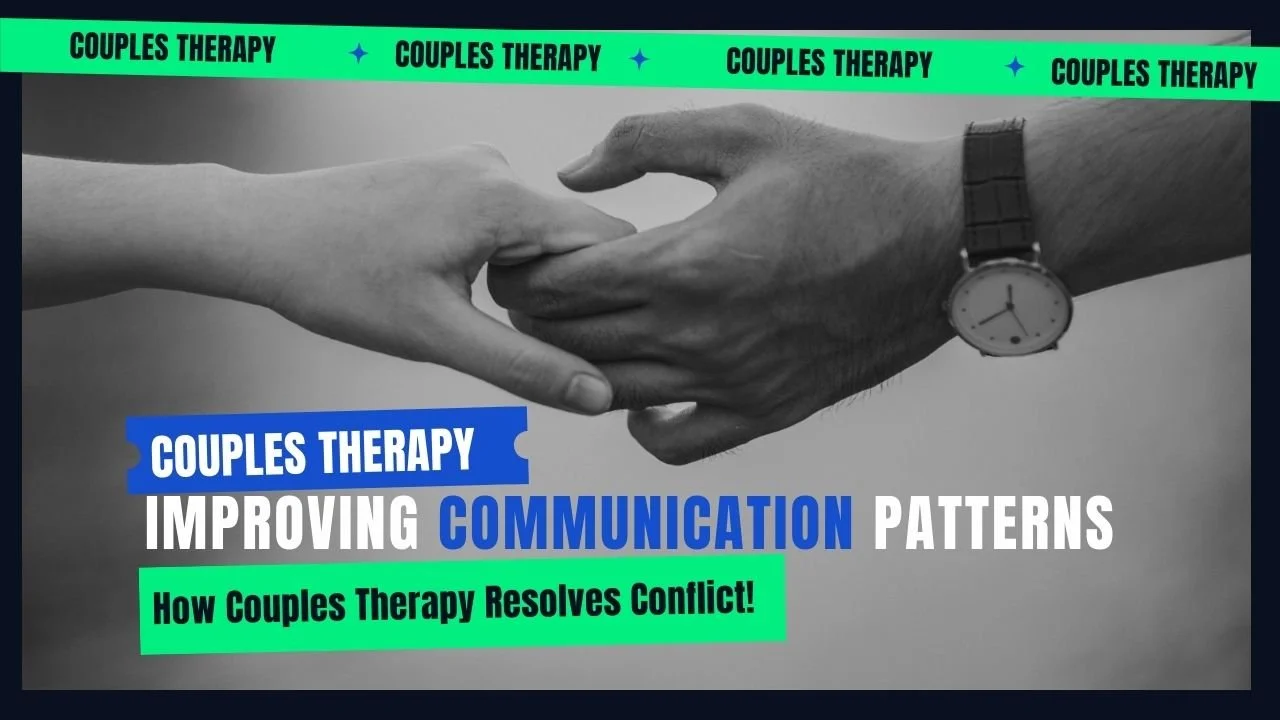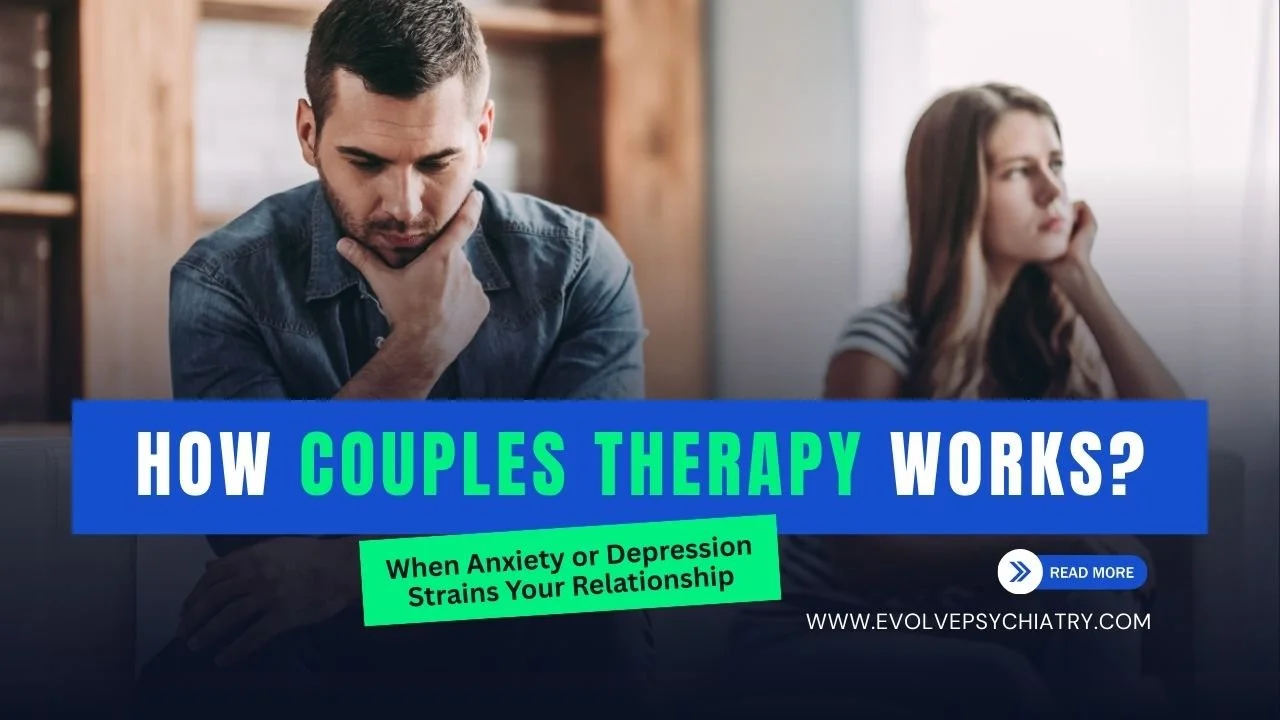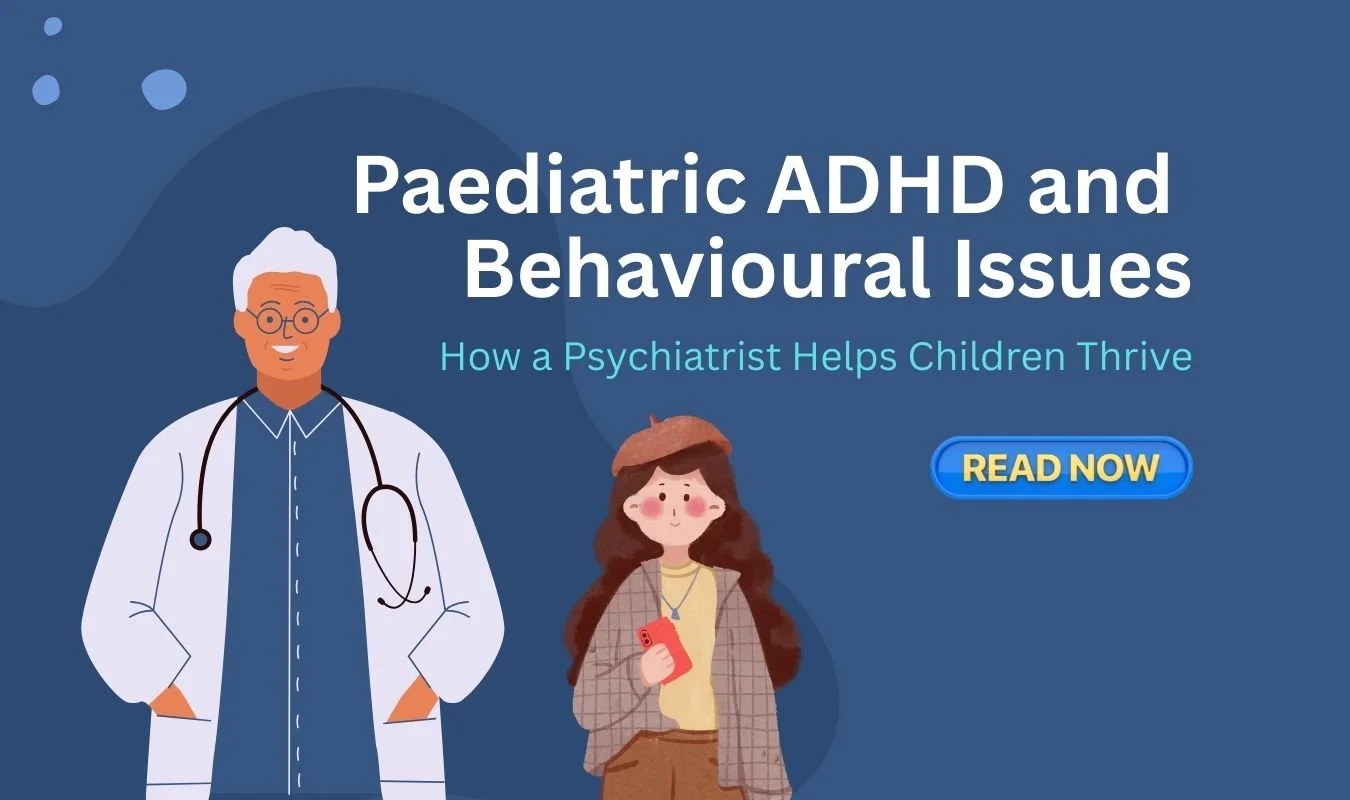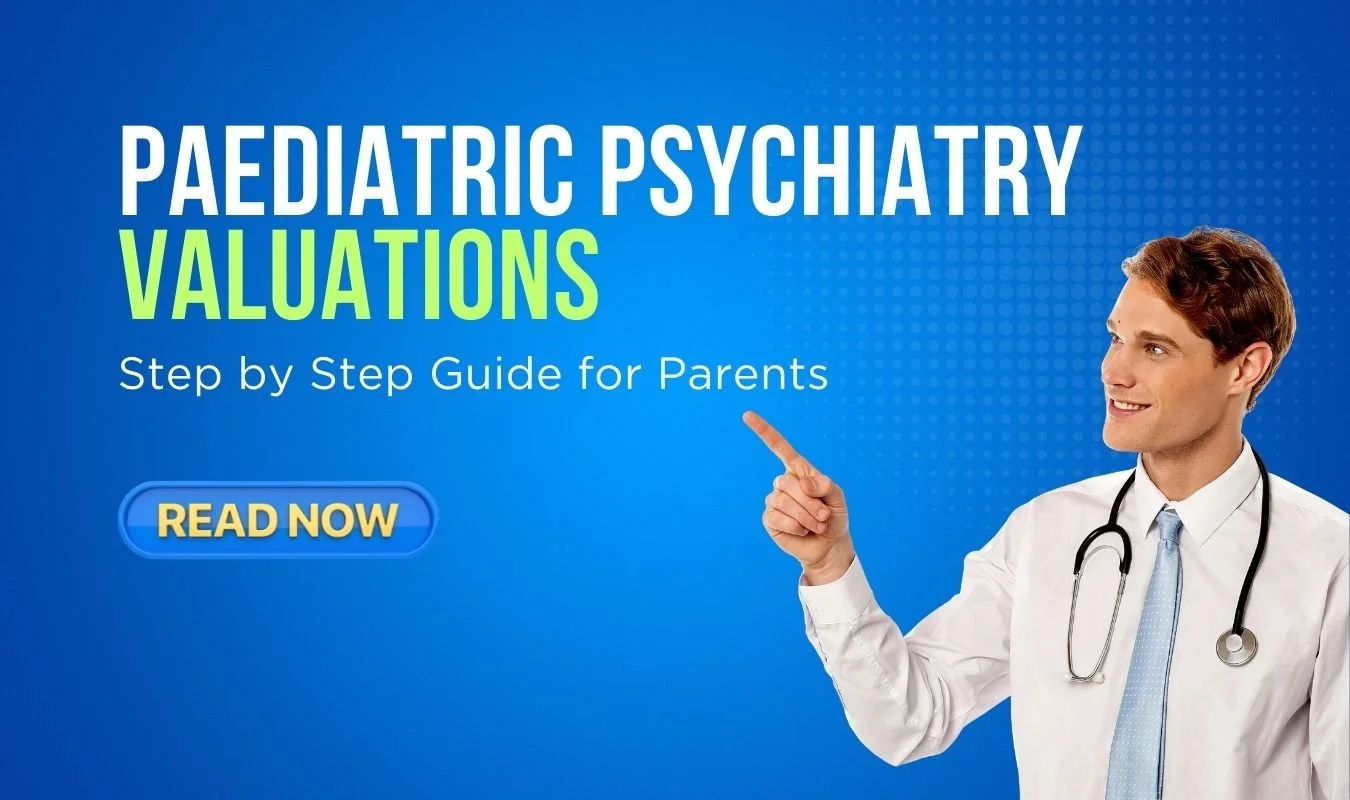Medication Management
Seeing a psychiatrist for a mental health diagnosis might be advisable if you are struggling to cope with certain aspects of your life. When you are having problems and do not know their cause, a medical professional can help diagnose mental illnesses or disorders. A diagnosis enables you to identify a solution that will work best for your situation. Psychiatrists work with individuals of various ages and backgrounds who are dealing with various mental health issues. People's reactions to these illnesses vary, as does the intensity of their symptoms.


Reasons To Visit A Psychiatrist
-
Nervousness or anxiety is natural and healthy before an interview or important meeting. But anxiety becomes an issue when it interferes with daily activities and is persistent. Anxiety disorders are characterized by recurring feelings of anxiety, concern, and agitation, even when there does not seem to be a cause. Talk therapy, medication, or a combination of the two are common treatments for anxiety. If anxiety persists or worsens, it is best to see a psychiatrist.
-
Many people suffer from depression, which is characterized by emotions of anger, melancholy, and despair. It should be noted that many people may have these feelings and not have depression; they are typically only considered debilitating when they last for at least two weeks and interfere with everyday life. Those with depression may be reluctant to seek assistance because they cannot foresee a better future or take the first step toward recovery due to their feelings of despair and poor self-worth. Talking with a psychiatrist can help improve a patient's mental health.
-
It is normal and natural to be scared of spiders, snakes, heights, or public speaking. However, a phobia is an overreaction to a fear that has a negative impact on one's daily life. People with phobias are often aware of the irrationality of their concerns, yet they are powerless to modify their behavior. Patients may work with a psychiatrist to figure out the fear's cause and how to mitigate it.
-
A person's mood fluctuations may indicate an underlying mental disease, such as bipolar disorder, schizophrenia, or depression. While bipolar disorder is a mental illness that may cause extreme mood swings, it can also produce many physical symptoms. For those who have bipolar illness, there are times when they feel euphoric and other times when they feel down and exhausted. Patients may seem perfectly normal in the intervals between their mood swings.
Recent posts
Can Couples Therapy Really Make a Relationship Stronger?
Many couples think therapy is only needed when a relationship is close to breaking. Others feel their problems are not serious enough to ask for help. These beliefs often stop couples from exploring a tool that can actually strengthen their bond. Couples therapy is not just about fixing problems. It is about learning skills, building understanding, and creating a healthier connection.
Thinking About Couples Therapy but Still Have Questions? You’re Not Alone
Many couples think about therapy long before they actually book a session. Questions, doubts, and worries often get in the way. You might wonder if your problems are serious enough. You may worry about being judged or blamed. Some couples fear that therapy will make things worse instead of better.
Couples therapy is often misunderstood as something only needed when a relationship is about to end. In reality, it is most effective when couples seek help early. Early signs are usually quieter. They show up as tension, distance, or repeated misunderstandings rather than major fights. Learning to recognize these signs can help couples take action before hurt and resentment grow deeper. This blog explains common early warning signals and helps you decide when couples therapy may be the right next step.
Couples therapy gets a bad rap as something only desperate people try when a relationship is doomed. But that idea is a myth. Healthy couples at any stage can use therapy to strengthen their bond, and even working on small problems early can prevent bigger issues later.
Seasonal Affective Disorder is a real medical condition, not just a passing case of the blues. Doctors recognize that changes in light and weather can trigger a shift in brain chemistry, leading to symptoms of depression. Understanding SAD is important because this condition is common in colder climates like the Northeast, and it can be treated
We are excited to announce that Evolve Psychiatry will soon open a new Genoa Healthcare pharmacy inside our Massapequa, NY clinic. This in-house pharmacy will bring pharmacy services directly to you, including a prescription delivery service for all Evolve patients.
Nervous About Your First Couples Therapy Session? Here’s What You Can Expect
Starting couples therapy is a big decision. You might feel hopeful, anxious, or unsure about what’s coming next. This guide will walk you through what actually happens in your first couples therapy session. By the end, you’ll feel more prepared, less anxious, and ready to make the most of your time in the room.
You’re Ready for Couples Therapy. But How Do You Choose the Right Couple Therapist?
This practical guide will help you navigate the process of choosing the right couples therapist. Whether you’re new to therapy or looking to switch providers, you’ll find clear steps and supportive insights to help you make a confident choice.
When Talking Turns to Tension: Can Couples Therapy Fix the Way You Communicate?
All relationships face moments of miscommunication. Couples therapy helps people learn how to talk, listen, and respond in healthier ways. With the right support, couples can replace arguments with understanding and conflict with connection.
When Mental Health Meets Love: Can Couples Therapy Bring You Back Together?
The truth is, mental health struggles can deeply affect even the strongest partnerships. But that doesn’t mean your relationship is broken. It means your connection needs support-and couples therapy can offer that support in a safe, structured way.
When ADHD Disrupts Love: Can Couples Therapy Help?
ADHD in relationships is more common than many realize. While the challenges are real, they are not impossible to manage. Couples therapy offers tools, support, and understanding that can help partners work as a team instead of feeling like they are on opposing sides.
When Love Feels Hard: How Couples Therapy Can Help
Every relationship has its challenges. Some couples face small misunderstandings that build up over time, while others find themselves caught in repetitive conflicts that never seem to resolve.
Paediatric ADHD and behavioural issues can impact a child’s learning, emotions, and family life. Discover how a child psychiatrist supports early diagnosis, effective treatment, and long term emotional growth.
Wondering how paediatric psychiatry evaluations work? This step by step parent guide explains what to expect, how assessments are done, and when to see a psychiatrist for teens near you for clear diagnosis and personalized care.
Concerned about early childhood mental health? Learn the conditions paediatric psychiatrists commonly treat, early warning signs to watch for, and when to seek a psychiatrist for teens near you to support healthy emotional development.
Not sure what a paediatric psychiatrist does or when your child may need one? Learn the role of a psychiatrist for teens near you, the signs to watch for, and how early psychiatric care supports emotional and developmental health.
Searching for a paediatric psychiatrist near me? Learn what parents should look for when choosing the right doctor, understand when to seek help, and discover how the right care supports your child’s emotional, behavioral, and developmental wellbeing.
Learn how teen psychiatry works at Evolve Psychiatry, from detailed assessments to personalized treatment plans and regular follow ups. Discover how a psychiatrist for teens near you supports your child’s emotional health with compassionate, structured care.
Worried about teen anxiety or depression? Learn the warning signs parents should watch for and understand when it is time to seek a psychiatrist for teens near you for early, effective mental health support.
Confused about teen therapy or medication? This parent friendly guide explains what happens during treatment and when working with a psychiatrist for teens near you can support your child’s emotional health and long term wellbeing.
Not sure if your teen needs professional help? Learn the early emotional, behavioral, and academic warning signs parents should never ignore and understand when it may be time to find a psychiatrist for teens near you.
Looking for a psychiatrist for teens near you? This complete parent guide explains when to seek help, how teen psychiatry works, and how to choose the right specialist to support your child’s mental health and long term emotional wellbeing.
Learn the complete steps in Spravato treatment and understand what happens before, during, and after each session. This clear guide explains the full process in simple language and helps you feel confident as you begin your journey toward relief from treatment resistant depression.
Curious about what Spravato treatment feels like? This guide explains every stage of the experience in simple, reassuring language and shows how Spravato can bring relief from treatment resistant depression under professional psychiatric care.
Learn the science behind Adults ADHD and how psychiatrists personalize treatment to improve focus, emotional balance, and daily functioning. Understand brain based causes and discover how the right approach can bring long term clarity and stability.
Discover how Adults ADHD affects work, relationships, and daily life, and learn why seeing an ADHD psychiatrist near you can bring clarity, focus, and long term balance. Understand the diagnosis process and personalized treatment that helps adults regain control.
Understand the differences between ADHD in adults and children and learn why a specialized ADHD psychiatrist is essential for accurate diagnosis and effective treatment. Discover how expert care helps you or your child build focus, confidence, and long term stability.
Understand what happens during an Adult ADHD psychiatrist visit. Learn about the evaluation process, diagnostic steps, and treatment planning so you can begin your Adults ADHD journey with clarity and confidence.
Discover how an Adult ADHD psychiatrist helps adults restore focus, motivation, and emotional balance. Learn the signs of Adults ADHD, the diagnosis process, and effective treatment options that bring long term clarity and control.
Discover how an Adult ADHD psychiatrist helps adults restore focus, motivation, and emotional balance. Learn the signs of Adults ADHD, the diagnosis process, and effective treatment options that bring long term clarity and control.





